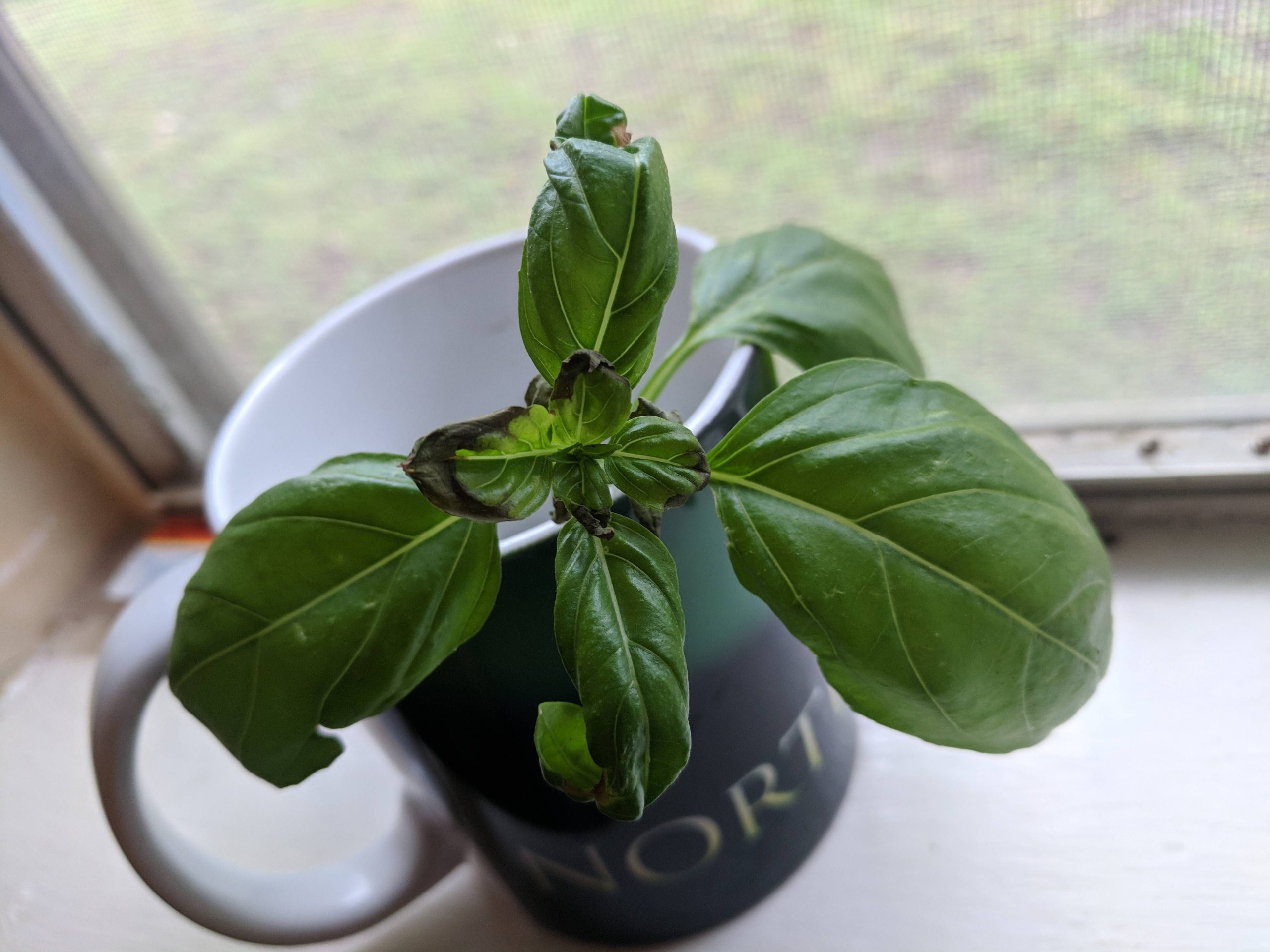
Basil leaves turning black or brown? 9 causes and solutions
Basil Leaves Turning Black or Brown? 9 Causes and Solutions In the realm of gardening and culinary delight, basil holds a special place. Its lush green leaves and fragrant aroma add a burst of flavor to various dishes. However, if you’ve noticed your basil leaves turning black or brown, it can be quite disheartening. Fear […]
Basil Leaves Turning Black or Brown? 9 Causes and Solutions
In the realm of gardening and culinary delight, basil holds a special place. Its lush green leaves and fragrant aroma add a burst of flavor to various dishes. However, if you’ve noticed your basil leaves turning black or brown, it can be quite disheartening. Fear not, for we’re here to unravel the mystery behind this issue and provide you with effective solutions to keep your basil thriving.
1. Overwatering
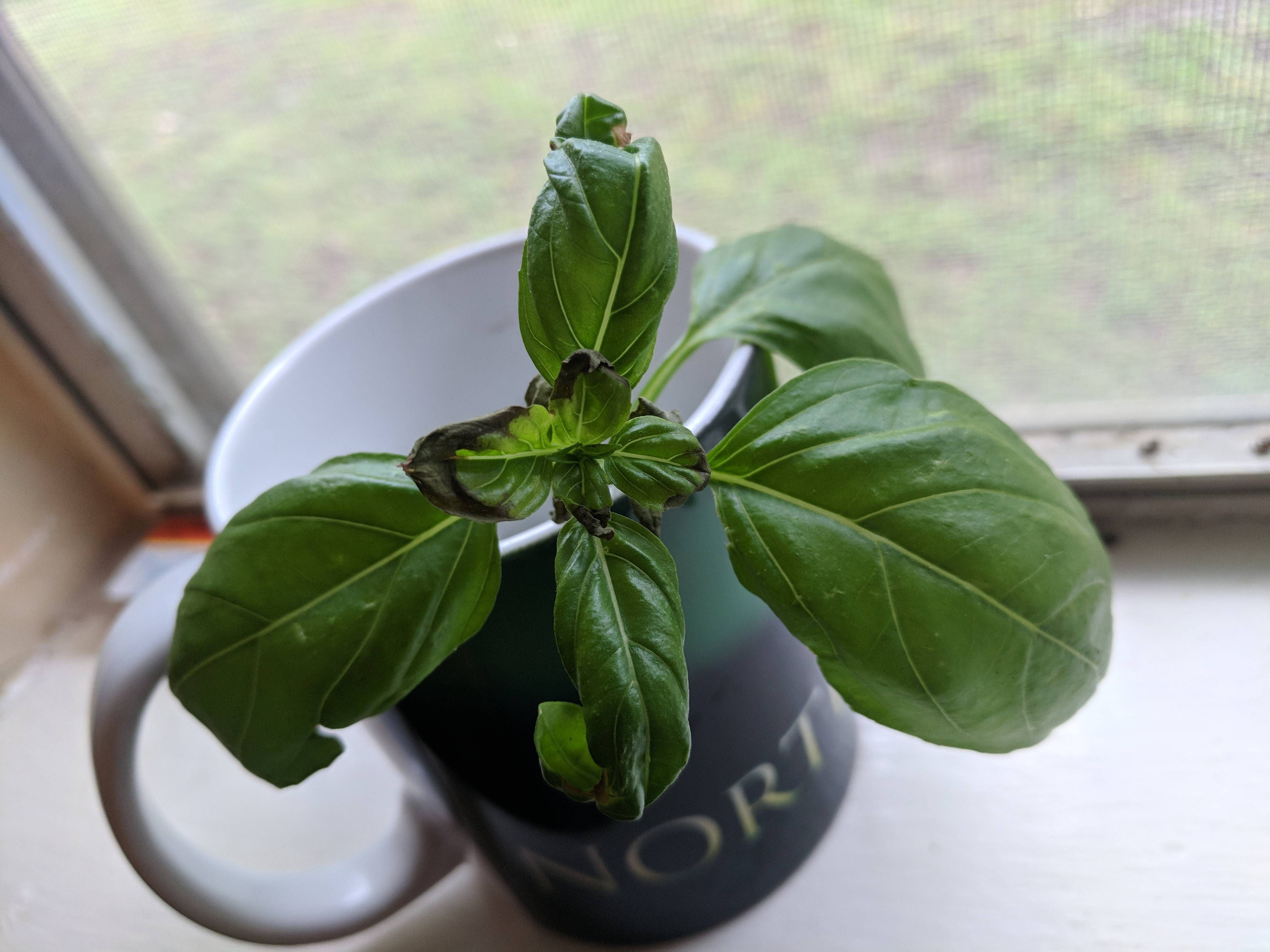
The Culprit: Overenthusiastic watering can spell doom for your basil. When the soil remains consistently waterlogged, it deprives the roots of oxygen, leading to root rot and, consequently, black or brown leaves.
The Solution: Always check the moisture level of the soil before watering. Basil prefers well-draining soil, so ensure your pot or garden bed has adequate drainage. Water deeply but less frequently to prevent overwatering.
2. Underwatering

The Culprit: On the flip side, underwatering your basil can cause stress to the plant. When the soil dries out completely, the leaves might turn brown as a defense mechanism.
The Solution: Monitor the soil moisture regularly and water your basil when the top inch of soil feels dry to the touch. Be consistent with your watering schedule to prevent periods of drought stress.
3. Sunlight Deficiency
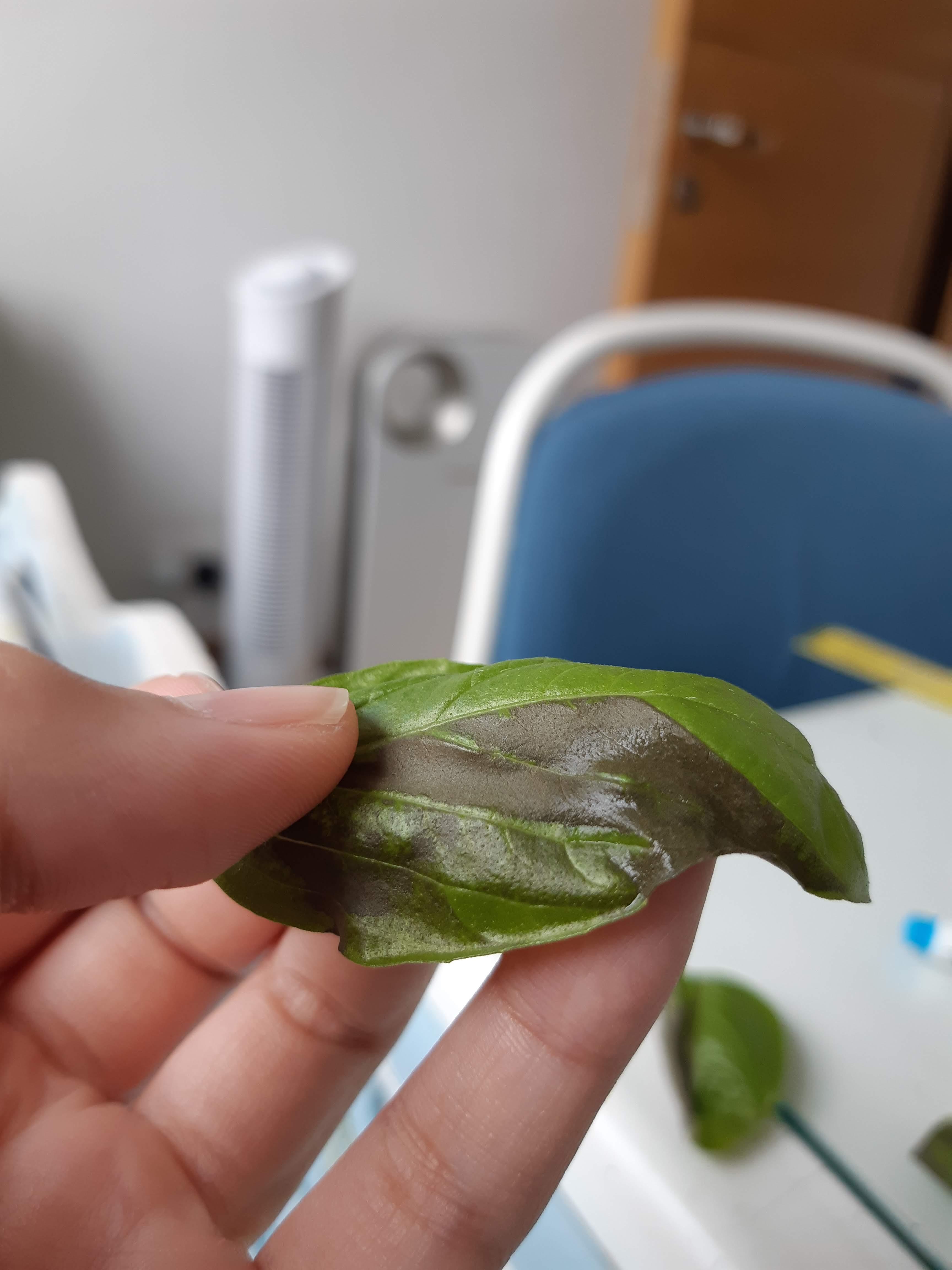
The Culprit: Basil thrives in full sun, but insufficient light can lead to weak, leggy growth and discolored leaves.
The Solution: Ensure your basil receives at least 6-8 hours of direct sunlight daily. If you’re growing it indoors, consider using grow lights to supplement natural light.
4. Pests
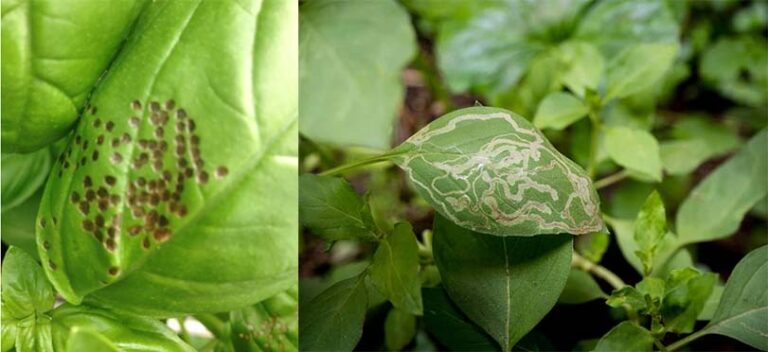
The Culprit: Basil can fall victim to various pests, including aphids and whiteflies. These tiny intruders feed on the plant’s juices, causing damage and discoloration.
The Solution: Regularly inspect your basil for signs of pests and take appropriate measures. You can use neem oil or insecticidal soap to combat infestations while keeping your basil safe.
5. Fungal Diseases
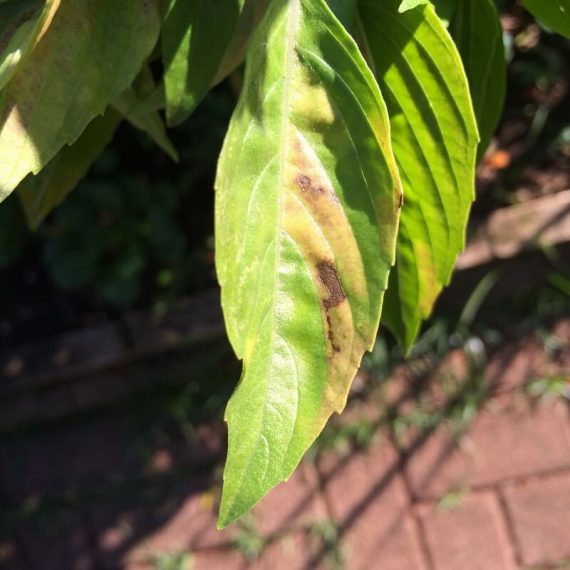
The Culprit: Fungal diseases like downy mildew and powdery mildew can lead to black or brown spots on basil leaves.
The Solution: To prevent these diseases, avoid overhead watering, which can splash infected soil onto the plant. Fungicides and proper spacing can also help in managing fungal issues.
6. Nutrient Deficiency
The Culprit: Basil requires essential nutrients like nitrogen, potassium, and magnesium. A lack of these nutrients can manifest as discoloration in the leaves.
The Solution: Use a balanced, all-purpose fertilizer to ensure your basil gets the nutrients it needs. Follow the application instructions on the fertilizer packaging.
7. Temperature Extremes
The Culprit: Basil is sensitive to extreme temperatures. Exposure to cold drafts or frost can cause leaves to turn black or brown.
The Solution: Protect your basil from cold snaps by covering it with a frost cloth or bringing potted basil indoors during chilly nights. Provide shade during scorching summer days.
8. Disease Spread
The Culprit: Basil planted too closely to other plants, especially those susceptible to diseases, can promote the spread of pathogens and lead to leaf discoloration.
The Solution: Space your basil plants adequately to promote air circulation and reduce the risk of disease transmission.
9. Aging Leaves
The Culprit: It’s natural for basil leaves to age and eventually turn yellow or brown. This is a part of the plant’s life cycle.
The Solution: Regularly prune and harvest your basil to encourage new growth. Remove aging leaves to maintain the overall health and appearance of the plant.
FAQ
Q1. Can I save my basil plant if the leaves have turned completely black or brown?
A1. In most cases, severely damaged leaves cannot be revived. However, by addressing the underlying issues and following proper care practices, you can encourage new growth and prevent further leaf discoloration.
Q2. Is it safe to eat basil leaves that have turned brown?
A2. While it’s generally safe to consume basil leaves that have minor discoloration, it’s best to remove the affected parts as they may have a slightly bitter taste. Opt for healthier, green leaves for culinary purposes.
Q3. Can I use any type of fertilizer for my basil plant?
A3. It’s recommended to use a balanced, all-purpose fertilizer with equal ratios of nitrogen, phosphorus, and potassium. This will provide your basil with the necessary nutrients for healthy growth.
Q4. How often should I prune my basil plant?
A4. Regularly prune your basil to encourage bushier growth and prevent the plant from flowering. It’s a good practice to pinch off the tips of the stems every few weeks.
In conclusion, understanding the causes of basil leaves turning black or brown and implementing the appropriate solutions is crucial for maintaining a thriving basil plant. By addressing issues like overwatering, underwatering, pest infestations, and nutrient deficiencies, you can enjoy a bountiful supply of fresh basil leaves for your culinary adventures. With proper care and attention, your basil plant can flourish and bring its vibrant green hues and aromatic flavors to your dishes.
tag
- chicken feed
- how to Keep Chickens Off Your Porch
- How to grow oyster mushrooms at home
- Growing Kale in Pots







